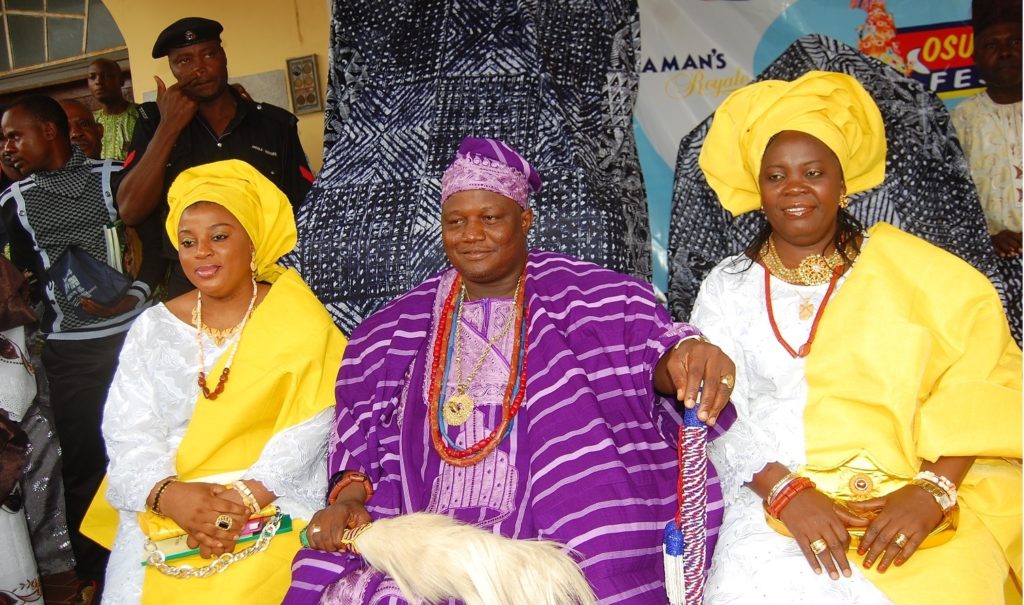-Doris Ukaonu
Polygamy and its role in Nigerian Tribes.
In the past, polygamous marriages were the most sought-after in Nigerian tribes. A man could marry as many wives for the mere sake of being a man before other factors are weighed. The reason for the practice which although seems fizzled in this current age is unique to various tribes.
Polygamy for certain reasons like culture, baby gender and economical reasons have gained some much-needed recognition in the various tribes.
Hausa Polygamy:
The practise of polygamy remains very popular in northern Nigeria, the Hausas. Among the 36 states in Nigeria, twelve northern states (Zamfara, Yobe, Sokoto, Niger, Kebbi, Kastina, Kano, Kaduna, Jigawa, Gombe, Borno and Bauchi) practice polygamy with the backing of the Sharia law.
It was an eyesore to see a Hausa man who has just one wife because marriage is solely based on the man’s interest, rather than for love and companionship between both parties. A man is allowed up to four wives ranging from teenage girls between the ages of 12-14, and adult women. ‘Iskishiya’ is a term used to address a co-wife, it is formed from the word ‘Jealousy’, although that is not the envisaged relationship among the wives. The men marry more than one wife for reasons such as trying to prove their manhood or to have enough hands to work in their family farm called gandu.
Because of the mass marriage, Hausa women face intense pressure to get married and have babies, that is why 50 per cent of the women here get divorced. A man can divorce his wife by saying ‘Talaq’ three times or writing it down on a piece of paper. Talaq in Arabic means divorce. To serve as a note of warning, the husband can say ‘Talaq’ once or twice to the wife, but when it reaches a third time, she must pack out of the house, and leave. Another method of Talaq is by filing a divorce in the Sharia court.
If the marriage bore children, the woman is not allowed to walk away with the children for economic advantages to the husband who needs as many hands to tilt his farmlands. The peculiarity associated with farming is attributed to legacy. Hausa sons inherit the gandu from their parents with the intention of passing it down to their own children, especially their sons to maintain a firm economy.
The polygynous lifestyle of the northerners is also supported in their holy book, which states “Marry of the women, who seem good to you, two or three or four; and if ye fear that ye cannot do justice (to so many) then one (only) or (the captives) that your right hands possess.”
Igbo Polygamy:
In Igbo land, marriage is one of the most important social customs. An Igbo man can decide to marry one or more wives for certain reasons but what spearheads the order of marriage here is patriarchy.
Before colonialism, Igbo’s enjoyed polygamy until they were introduced by the colonial masters to Christianity and were told it was against biblical teachings. It isn’t that the Igbos totally reject polygamy, now, but they no longer encourage it as much as they used to.
Back then, an Igbo man marrying more than one wife was a show of wealth and ego. He needed more than one wife to exercise his full-blown patriarchy. The wives usually rotate duties among themselves, there is a specific time to lay with the husband, and proper allocation of who is to cook his meals, wash his clothes, harvest from the farm etc. The woman who bears the first male son is the most preferred but later, the man might feel the need to wed a young bride to fulfil his sexual urges.
The marriage order was two ends of a rope. It involved seeking the consent of a young woman ripe for marriage and introducing her to the said family to meet their son (the groom). After this, three steps follow, watching the lady’s character, investigate her family’s background and finally, the bride price settlement seals the deal.
Now, the practice of polygamy in most Igbo homes is usually due to the quest for a child, especially a male child.
The Igbo’s place so much importance on the male child, if a woman cannot bear a son, she is considered barren by her inlaws even though she might have daughters. A male child is seen as the future to carry on the family’s legacy.
Yoruba Polygamy:
Traditionally and contemporarily, the Yoruba’s agree with the practice of polygamy so long as the man is financially capable. A man marries more than one wife to gain accolades, popularity and influence.
A mutual agreement and hierarchy fuels the relationship among the wives in a manner that allows them to live peacefully. The first wife is called ‘Iyaale’, she is respected by the other wives and is responsible for assigning duties like sweeping, cleaning, fetching water, fetching firewood and other household duties. Iyaale is also responsible for dishing punishment to erring wives who are fond of stirring disputes and also have stubborn children.
It is prohibited for a younger wife to call the children she met in the house before she was married by name and if peradventure the husband dies, his younger brother had the right to marry any of the wives; the senior brother is not allowed such privileges. The women cannot remarry, but they are permitted to return to their parent’s house.
Conclusion:
Even though the Nigerian civil law and many faces frown at polygamy, tradition continues to encourage it. The question now is, is polygamy good? Although known as one of the greatest cause of family strife, looking at the brighter side, polygamy has helped to retain many family legacies. Rather than imposed, it should be a choice.
Related posts
Global | Didi Angaye Earns A Distinction Award, Another Feather To The Cap
On a bright sunny day, in the month of July, 2024, the prestigious Staffordshire University located in the West Midlands of England organised its Award giving and Graduation ceremony to honour graduates of various educational programmes and courses which it offers. Didi Timipah Angaye,…
Olu Of Warri Bags Award In UK, Wife Advocates Return To Cultural Values
The Olu of Warri, Ogiame Atuwatse III, has received the Leadership and Community Development award at the 14th African Achievers Awards (AAA), which took place at the Parliament House, United Kingdom. The award was presented by a member of the House of Lords, London, Rt…
Brit Awards | Asake, Burna Boy And Other ‘New Cats’ Get Nominations
Nigerian singers Burna Boy, Asake, and Rema have been nominated for the 2024 Brit Awards. The nomination list for the annual music awards show was released on Wednesday 25, January 2024. Burna Boy and Asake made the ‘Best International Artiste’ category, while ‘Calm…
Brit Awards 2024 | The Full List Of Artist(e)s
This year’s Brits nominees have been revealed ahead of the ceremony in London in March. Dua Lipa is the first star confirmed to perform at the event – but how many awards is she up for? Musicians including Raye, Central Cee, J Hus and Blur are also…
Top 10 Cryptocurrencies To Invest in January 2024
-Michael Adams From Bitcoin and Ethereum to Dogecoin and Tether, there are thousands of different cryptocurrencies, making it overwhelming when you’re first getting started in the world of crypto. To help you get your bearings, these are the top 10 cryptocurrencies based on their market…
The Risk And Reward Of ChatGPT In Cybersecurity
Juan is an experienced CTO with a demonstrated history of working in the computer and network security industry. He is an information technology professional skilled in SAP and Oracle applications, computer forensics, vulnerabilities research, IPS/IDS and information security. Unless you’ve been on a retreat in…
Explained – History Of Money From Fiat To Crypto
What is money? Money as a concept has been a cornerstone of human civilization and economic development. To start with the latter, money is a method of storing value and worth, and it also functions as a medium of exchange that allows individuals to exchange…
Studies Show That Nigerian Crypto Foreign Investment Is At A Record Low
Foreign direct investment in Nigeria fell by 33% last year due to a severe shortage of dollars, which discouraged crypto companies from expanding into the country. The largest economy in Africa has a foreign investment problem despite exponential growth in crypto adoption. The National Bureau…












